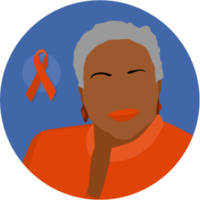
Black History Month
Black History Month is a great time to acknowledge the contributions to public health by the many Black Americans who have saved lives and paved the way for better health. However, how do you choose who to share about from the expansive list of public health heroes? All public health is important to us, but for the sake of time, let’s focus on some programs where Spokane Regional Health District (SRHD) staff directly provides for our community. Here are four Black public health leaders who have made an impact in those areas.

We seek to prevent maternal and child health disparities through efforts like our Nurse Family Partnership, Women, Infant, and Children Nutrition (WIC), and Early Support for Infants and Toddlers (ESIT) programs. Two women have been pivotal in this movement in our country. One is Ionia Rollin Whipper, one of the few African American obstetricians in the early 1900s. She traveled the South to teach public health practices and hygiene to midwives and mothers. After her work in the South, she continued her legacy of helping young Black mothers have healthy pregnancies. Dr. Regina Benjamin, the 18th U.S. Surgeon General (2009-2013), is another amazing example. She shifted the national focus on health from treatment-based to a public health approach by focusing on prevention. Her focuses on breastfeeding, baby-friendly hospitals, and healthy housing conditions were a huge support for maternal and child health.

SRHD’s HIV prevention and case management is another area where we serve the community. Without people like Debra Fraser-Howze, our country would not have made the advancements to help at the level we do now. Fraser-Howze has been a leader in the HIV and AIDS crisis advising two U.S. presidents and serving as president and CEO of the National Black Leadership Commission on AIDS (NBLCA). Fraser-Howse founded NBLCA in 1987, and it is now one of the largest Black HIV and AIDS non-profit organizations in America.

Now, let’s look at environmental public health, which often goes unnoticed, but affects every single person in our region. It can be easy for some of us to take clean drinking water for granted, but not Mari Copeny, a 14-year-old activist from Flint, Michigan. When Mari was 8 years old, she wrote a letter to President Obama about the water crisis she and other kids were facing. President Obama’s visit led to $100 million worth of relief for the city of Flint. Mari didn’t stop there though. She continues to raise awareness and funds for clean water across the country.
Our blog post from last year’s Black History Month talked about Black leaders in the fight against COVID-19. You can see just from these few examples how much public health has been impacted by Black leaders throughout history. We are so grateful for these and the many more contributions that create healthier people and communities.
